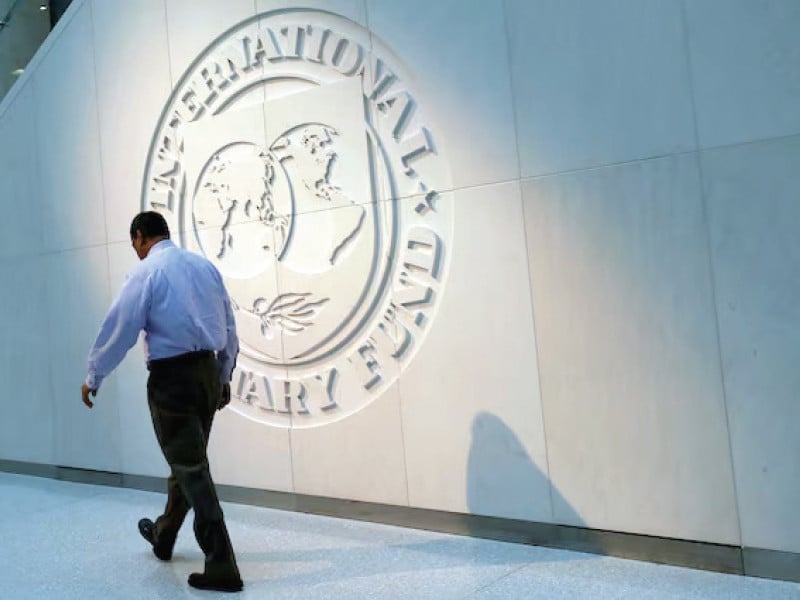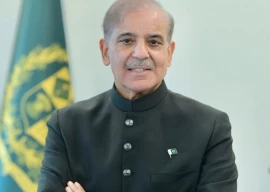
Pakistan was in talks with China, Saudi Arabia and the United Arab Emirates for rescheduling of $12 billion debt for up to five years aimed at meeting the last condition for approval of the $7 billion International Monetary Fund programme, said Finance Minister Muhammad Aurangzeb on Sunday.
In his first press conference after returning from Beijing where he had gone for energy debt rollover talks, the finance minister, however, did not announce any breakthrough. However, he said that China has "acknowledged the issue and the discussions were "very constructive".
"We are requesting the maturity extension of the existing cash deposits for three to five years", the finance minister revealed.
Pakistan had taken $5 billion from Saudi Arabia, $4 billion from China and $3 billion from the UAE for a period of one year. However, due to its inability to pay back these loans, the country has been securing one-year extensions every time.
Now, as part of the IMF condition, Pakistan has approached its three principal bilateral creditors with a request to reschedule the debt for three to five years. If these countries agree, it will bring an end to uncertainty at the time of maturity of these loans.
Out of the $12 billion, the $5 billion debt has matured in July. However, in past, these regional capitals have ignored such rollover requests for longer tenors.
Between now and the IMF executive board meeting, Pakistan needs confirmations of the external financing requirements from the bilateral creditors, explained Aurangzeb. He said that the external financing gap has also been identified for a period of three years, which is very manageable.
"I am in touch with the finance ministers of China, Saudi Arabia and the UAE on the issue of the rollovers of the existing debts," he added.
"As a country, our hands have been forced. Neither we have fiscal space nor we have space for external financing", lamented Aurangzeb who has been brought in to steer the ship at a time when economic decision-making space has been completely surrendered to multilateral and bilateral creditors.
To a question, Aurangzeb said that the cash-deposit era was over and now the bilateral creditors want equity stakes and seats on the boards of the state-owned companies.
The finance minister, however, said that China will support Pakistan in securing approval for the IMF agreement.
China, Saudi Arabia, and the UAE have always been very important partners in terms of meeting external financing requirements, the finance minister said.
The IMF had announced the staff-level agreement early this month and its board may meet later next month to approve the $7 billion package provided Pakistan secures rollovers of the bilateral creditors and assurances to fill the financing gaps.
The developments are taking place amid some new anti-China rhetoric from the United States, mainly coming from its point man for South Asia and former Presidential candidate who has proposed new legislation to tighten China.
Pakistan will have to work with both the US and China, as both are equally important for us, the finance minister said.
"China is a strategic partner and we see a value in that while the US is Pakistan's largest export market", the finance minister said while responding to a question about a Bill moved in the US Congress about elevating US-India relations.
Energy Debt
The finance minister and Power Minister Sardar Awais Laghari had travelled to Beijing to secure energy debt relief -- a mission that apparently could not achieve its objectives.
The minister had meetings with the finance minister of China, the governor of the Peoples Bank of China, the president of Chinese commercial banks, the credit insurer company -SINOSURE- and the official from the Chinese energy department.
"When someone is in pain, as we are, then the first thing is to begin serious discussions" the finance minister said. "It cannot happen tomorrow but we have asked to seriously consider the request to extend loan repayments", the finance minister said.
Pakistan sought an extension in energy debt repayments, conversion of lending currency and reduction in the interest rates.
The finance minister said that the situation was very delicate and Pakistan cannot unilaterally end the agreements with any foreign investor. He detailed that Pakistan took up the issue of reprofiling of the energy debt for nine CPEC power generation and one power transmission line project.
He said that the Pakistani delegation took up the issue of conversion of imported coal to local coal but this will require finding solutions to technical, logistics and financial issues.
Aurangzeb said that Pakistan also requested reprofiling of the energy debt and China has acknowledged the issue. "In my view, these were very constructive discussions", he added.
Pakistan will hire a Chinese financial advisor for the energy debt rescheduling, the finance minister said. We are clear that high electricity bills are an immediate as well as structural issue and we will take both issues side by side, he added.
The finance minister said that Pakistan was current on energy debt repayments but the issue was the delay in payments of the dividends to the sponsors of the Chinese energy plants.
"We are not asking for restructuring or haircut rather our request is for extension in maturity periods," he added.
"We also need future investments, therefore, cannot ignore the integrity of the existing agreements because of any short-term knee-jerk reaction."
Domestic Agenda
The finance minister noted that reforms in the Federal Board of Revenue (FBR) are discussed weekly, and provincial governments are encouraged to legislate taxes in the agricultural sector.
He said that about 4.9 million non-filers have been identified by tracing their expenses. Out of these, about 1 million are affluent people, and in the first phase, the government will issue centralised tax notices to them.
The minister said that he would personally see these notices so that there are no chances of any arm-twisting of the people by the FBR. The field offices would go after these people only after their tax liability is established, he added.
The finance minister stressed the importance of simplifying tax processes, comparing it to the straightforward tax systems in other countries, where annual forms provide clear tax details without the need for legal assistance.
"It was a matter of shame for me when I received calls from people saying they had received their tax refunds but had to pay 5% to 6% in bribes," Aurangzeb said.
He stated that robust measures are being taken to improve the country's economy.
He emphasized that without including the untaxed and under-taxed communities in the tax regime, achieving certainty and ease of collection, which are vital for economic stability, is not possible.
Regarding facilitation to the business community, Muhammad Aurangzeb mentioned that claims worth Rs68 billion have so far been refunded in July.
He urged the media to start a campaign against the under-taxed and untaxed sectors.
Stressing the importance of rightsizing, the minister said five ministries, including Kashmir and Gilgit Baltistan, SAFRON, Industries and Production, Information Technology, and Health, have been shortlisted in this regard.
He added that Prime Minister Shehbaz Sharif will make the final decision on this matter.
In response to criticism of the anti-growth budget, the finance minister said, "We have gone for growth budgets many times in the past but ended up in the balance of payments crises every time. We also tried to push back the IMF, but that did not work," he added, referring to Pakistan's previous approach of confronting the IMF on many issues.
"When you are dealing with the lender of last resort, you really do not have a choice and a Plan B," the finance minister said.


















COMMENTS
Comments are moderated and generally will be posted if they are on-topic and not abusive.
For more information, please see our Comments FAQ